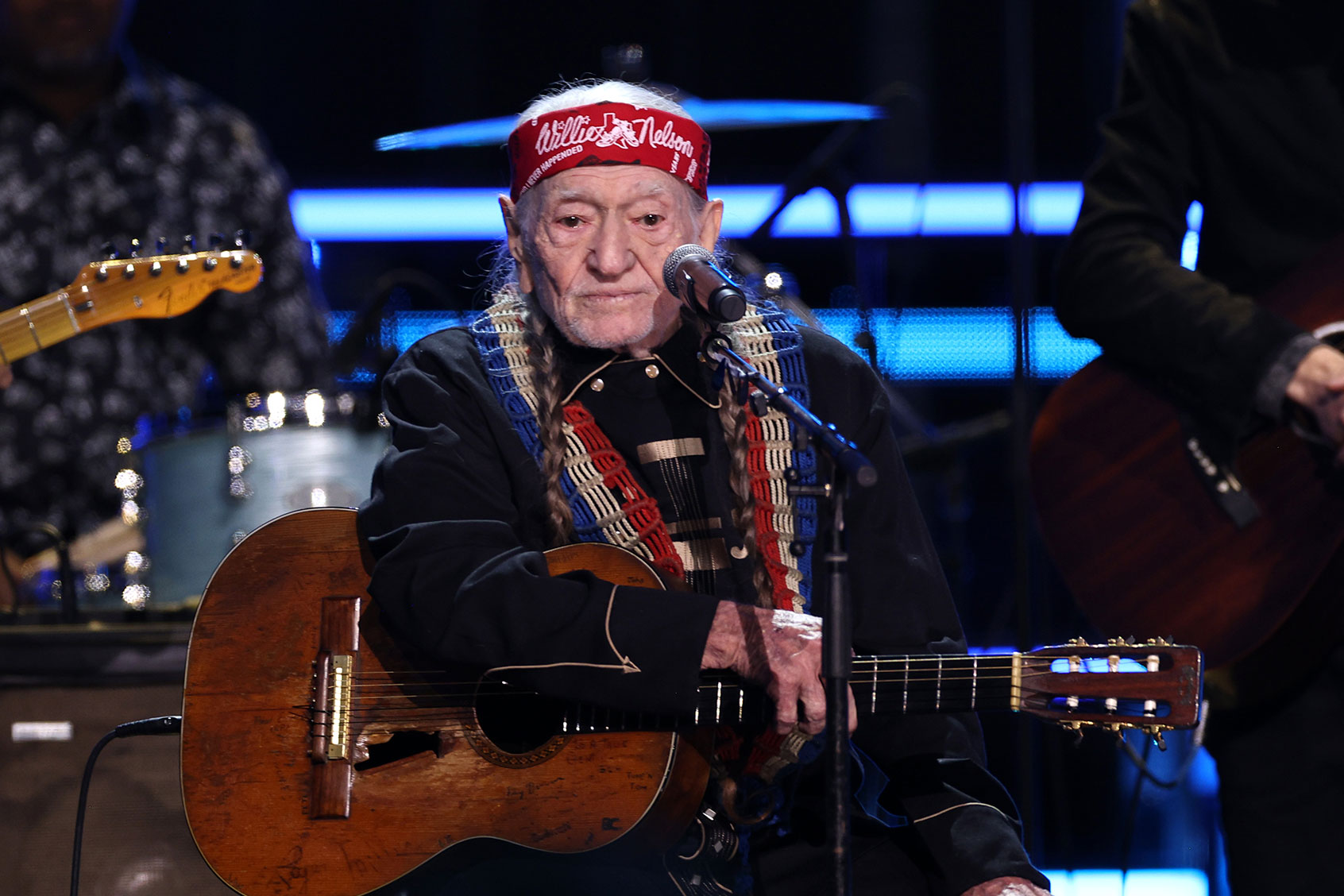The year 2023 was a pretty big one for Willie Nelson, who celebrated his 90th birthday back in April.
The country music legend — who is best known for shaping the outlaw country subgenre of the late 1960s — has had a pretty colorful career, filled with its fair share of ups and downs. Born into great poverty, Nelson credits music for giving his life both purpose and meaning. Even when the industry itself was unkind to him during his early beginnings, Nelson persevered, never losing sight of his dream to make it big as a country musician.
Many can attest to Nelson’s immense success. He remains one of the most recognized artists in country music, thanks to the critical successes of his albums “Shotgun Willie,” “Red Headed Stranger” and “Stardust.” In 1993, he was inducted into the Country Music Hall of Fame. In 1998, he received the Kennedy Center Honors. In 2008, he was inducted into the Grammy Hall of Fame and in 2023, the Rock & Roll Hall of Fame.
Nelson’s career, along with his tumultuous personal life, are all explored in “Willie Nelson & Family,” a new documentary series on Paramount+. The four-part series looks back at nine decades of history through a series of interviews, including with Willie’s former spouses, his current spouse, his eight children, his closest acquaintances in the music business and several country music experts.
Here are the 11 biggest bombshells from the series:
 Willie Nelson (L) and sister Bobbie Nelson perform in concert on New Years Eve at ACL Live on December 31, 2014 in Austin, Texas. (Gary Miller/Getty Images)
Willie Nelson (L) and sister Bobbie Nelson perform in concert on New Years Eve at ACL Live on December 31, 2014 in Austin, Texas. (Gary Miller/Getty Images) Willie Nelson (L) and sister Bobbie Nelson perform in concert on New Years Eve at ACL Live on December 31, 2014 in Austin, Texas. (Gary Miller/Getty Images)
Willie Nelson (L) and sister Bobbie Nelson perform in concert on New Years Eve at ACL Live on December 31, 2014 in Austin, Texas. (Gary Miller/Getty Images)“The introduction of music into Nelson’s life is maybe one of the reasons that he was able to navigate his childhood with the grace that he did because there was trauma in the fact that his mom and dad gave up Willie and Bobbie to the grandparents,” said David Ritz, the co-author of Willie Nelson’s 2015 autobiography “It's A Long Story: My Life.”
Nelson's sister, Bobbie Nelson, explained that the siblings grew up in Abbott, Texas. Their mother, Myrle Marie, was three-quarters Cherokee and was “scorned for her ethnic appearance.” Their father, Ira Doyle Nelson, was “no one we could count on.” Myrle left the family soon after Willie’s birth, and Ira abandoned his children after remarrying. Left with no other choice, the siblings were taken in by their grandparents, who ultimately gave them the kind of upbringing they needed.
“For as long as I can remember, Bobbie and I called my grandparents ‘Mama and Daddy Nelson.’ Mama and Daddy Nelson gave Bobbie and me two gifts that saved our lives: love and music,” Nelson recalled. “My grandmother stressed the importance of breathing way down deep from the diaphragm, she called it. I found out that that’s probably been as much help as anything in keeping my voice strong.
“Mama and Daddy Nelson taught music as a form of worship, another way to praise the Lord. They anchored us, raised us and kept us — or at least, tried to keep me — on the straight and narrow.”
 US musician Willie Nelson performs during the Farm Aid Music Festival at the Ruoff Music Center on September 23, 2023 in Noblesville, Indiana. (SUZANNE CORDEIRO/AFP via Getty Images)
US musician Willie Nelson performs during the Farm Aid Music Festival at the Ruoff Music Center on September 23, 2023 in Noblesville, Indiana. (SUZANNE CORDEIRO/AFP via Getty Images)Nelson was born on April 29, 1933, but because he was born around midnight, the county clerk erroneously recorded his birthday as April 30.
“I was born before midnight on the 29th, but it didn’t get registered in the county courthouse until the next day, the 30th,” he told KXAN-TV news earlier this month. “So, it went out officially as the 30th. So I just do both days.”
Nelson celebrated his 90th birthday this year with a star-studded concert that aired on Dec. 17. The musical showcase featured performances by Nelson himself, Beck, Sheryl Crow, Snoop Dogg, Norah Jones, Miranda Lambert, Dave Matthews, Nelson's sons Lukas Nelson and Micah Nelson, George Strait, Chris Stapleton and more. It was hosted by Jennifer Garner, Chelsea Handler, Woody Harrelson, Ethan Hawke, Helen Mirren and Owen Wilson.
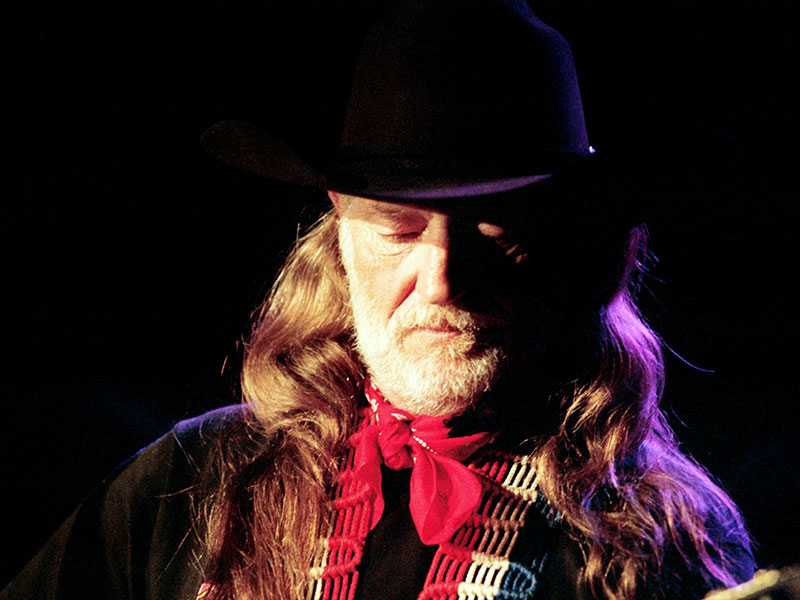 Willie Nelson during VH1's Willie Nelson and Friends at The Roxy in Hollywood, CA, United States. (Jeff Kravitz/FilmMagic, Inc/Getty Images)
Willie Nelson during VH1's Willie Nelson and Friends at The Roxy in Hollywood, CA, United States. (Jeff Kravitz/FilmMagic, Inc/Getty Images)Willie Nelson met his first wife Martha Jewel Matthews in 1952, when he was 19 and she was 16. He said Matthews “was a dark-haired beauty, a full-blooded Cherokee” whose “eyes set my soul on fire.”
The pair quickly became friends and after two or three days of talking, they began going out. Nelson and Matthews, who died of liver failure in 1989, eventually ran off and got married without Matthews’ parents knowing about it.
“Mama said one time it was like Bonnie and Clyde going through America on their own, not worrying about money, but having to worry about money at the same time,” said their daughter Lana Nelson.
During their decade-long marriage, the pair had their fair share of ups and downs:
“We had a lot of fun together but we fought, and we both were drinking a lot in those days," Nelson said. “One morning we got in this argument, and she picked up this fork and threw it across the table and it stuck in my side. It sounded like a tuning fork.”
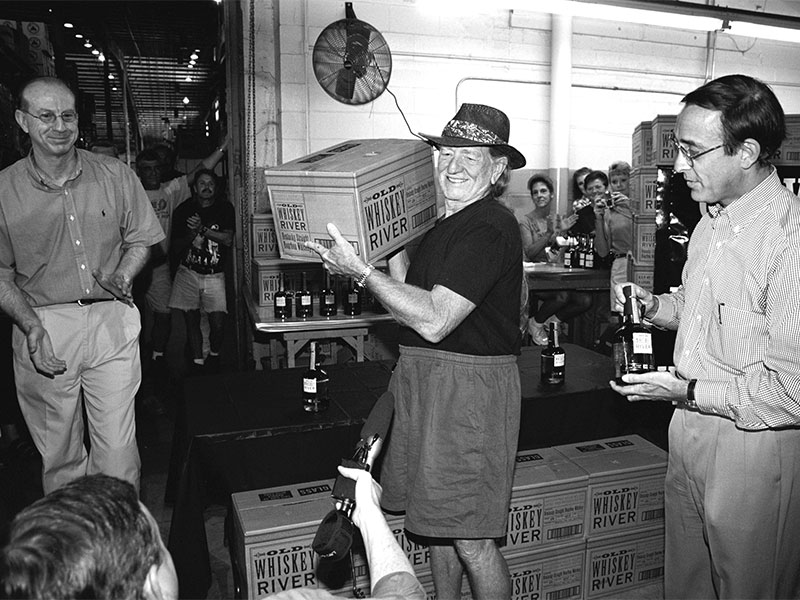 Singer Willie Nelson (C) hoists the first case of the new handcrafted Old Whiskey River Kentucky Straight Bourbon as Jeff Homel (L) and Max Shapira look on at Heaven Hill Distillery in this undated photo taken in Bardstown, KY. (Photo courtesy of Old Whiskey Bourbon via Getty Images)
Singer Willie Nelson (C) hoists the first case of the new handcrafted Old Whiskey River Kentucky Straight Bourbon as Jeff Homel (L) and Max Shapira look on at Heaven Hill Distillery in this undated photo taken in Bardstown, KY. (Photo courtesy of Old Whiskey Bourbon via Getty Images)Nelson and Matthews, along with their three children (Lana, Susie and Billy), all settled in Nashville during the '60s so Nelson could fulfill his dreams of becoming a big star in the country music scene. Unfortunately, that proved to be incredibly difficult as he struggled to make enough money as an aspiring performer and songwriter. Matthews said she got fed up with the family’s financial situation, so much so that she decided she would no longer put up with “no more crap.”
“She and I were fighting worse than ever, and I started drinking more than ever,” Nelson said. “I would get drunk every night and go home with someone different every night. [I was] slowly self-destructing. I really didn't care.”
He continued, “Back in my drinking days, I tried to [die by] suicide a couple of times. One time in the dead of winter I was so down on myself I laid down in the middle of the street hoping a car would run over me. No such luck. I had to get up off my ass and kept on trying to figure out how to make a living.”
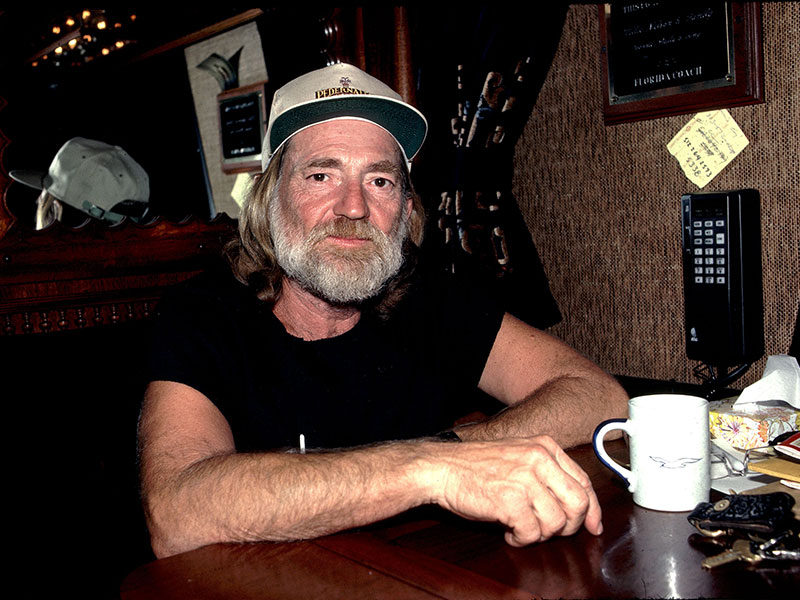 Willie Nelson on 8/19/84 in Chicago, Il. (Paul Natkin/WireImage/Getty Images)
Willie Nelson on 8/19/84 in Chicago, Il. (Paul Natkin/WireImage/Getty Images)In 1962, Nelson and Matthews got divorced, which the former said was “inevitable.” Shortly after, he got married to Shirley Collie, with whom he duetted the hit country tune “Willingly” with. Nelson recalled the intense chemistry he felt with Collie while the duo recorded their song: “The title just about summed up the sexual vibe we felt in the studio.”
Their marriage, however, also ended in divorce. Collie learned her husband was having a decades-long affair when she discovered a Houston hospital bill that revealed Nelson’s mistress at the time, Connie Koepke, had given birth to a baby girl named Paula Carlene.
“Shirley wanted to know who in the hell was Connie Nelson,” he said. “The truth is Connie [Koepke] had been my girlfriend for several years before becoming pregnant.” His daughter Lana added that the hospital bill was also how she learned of her father’s affair.
“She had no idea there was a Connie,” Lana said of Collie. “She had no idea there was a baby until she got the hospital bill. That’s how she found out about Connie. That’s how I found out about Connie.”
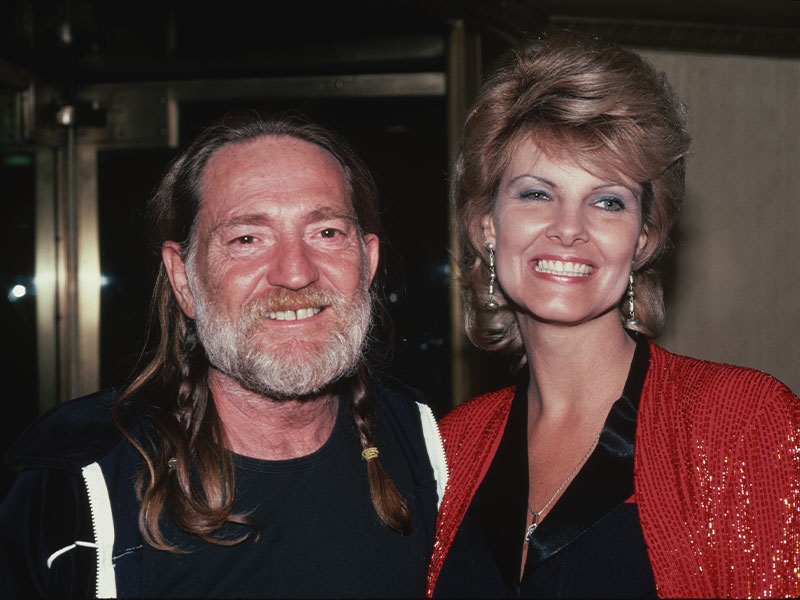 Willie Nelson with His Wife (LGI Stock/Corbis/VCG via Getty Images)
Willie Nelson with His Wife (LGI Stock/Corbis/VCG via Getty Images)Willie Nelson tied the knot with Koepke 1971, the same year he finalized his divorce from Collie. Prior to their marriage, Koepke said "the farthest thing from my mind” at the time was “getting pregnant and telling my mom and dad.”
“Anyway, it happened,” she continued. “Honestly, I was the next one, and I don’t mean that in a bad way. It's just Shirley wasn’t their mother, she was gone. I bonded with those kids so much. I loved those kids. They all became my kids, too.”
Nelson and Koepke’s daughter Paula also made an appearance in the documentary, saying her mother was “the new girlfriend, then wife.” She added that while it was difficult for Susie, Lana and Billy to adjust, they are “all close” now.
“That's dad's doing really, because he’s the one that kind of brought us all together as one big tribe.”
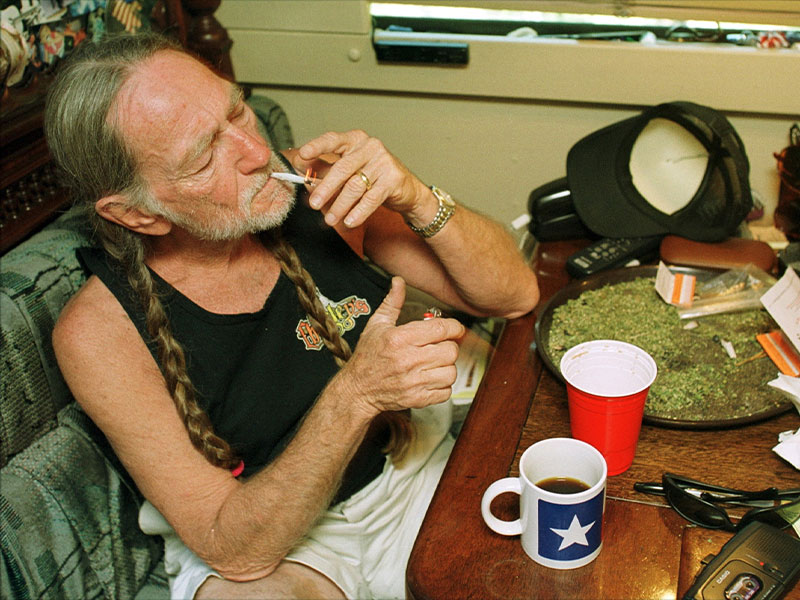 American country singer Willie Nelson takes a drag off a joint while relaxing at his home in Texas, 2000s. (Liaison/Getty Images)
American country singer Willie Nelson takes a drag off a joint while relaxing at his home in Texas, 2000s. (Liaison/Getty Images)Willie Nelson’s house in Ridgetop, Tennessee, caught on fire right before Christmas in 1970. He had gone out to an annual Christmas party at the King of the Road Club in Nashville and later rushed home after her he was told over the phone that his house was going up in flames.
Inside the burning house was Paula, who was napping in her crib located in the back bedroom. She was saved by her half brother Billy after he smelled smoke.
Nelson later ran into the house, past all the firemen, to rescue two important items: his beloved guitar Trigger and “a bag of primo Colombian pot.”
“I wasn’t about to lose a couple of pounds of good pot,” he said. “Sometimes disruption and even material destruction can help you rethink your priorities. Something about that Ridgetop fire told me it was time to get a move on. I was anxious to get back home.”
Home, Nelson said, was Texas.
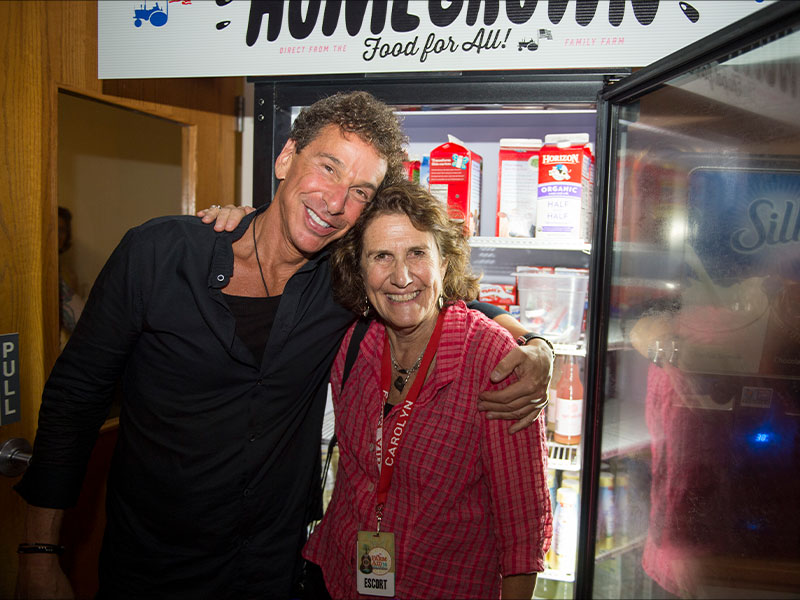 Willie Nelson's manager Mark Rothbaum, and Farm Aid's Carolyn Mugar backstage at the Walnut Creek Amphitheatre in Raleigh, North Carolina for the 2014 Farm Aid concert on September 13, 2014. (Ebet Roberts/Redferns/Getty Images)
Willie Nelson's manager Mark Rothbaum, and Farm Aid's Carolyn Mugar backstage at the Walnut Creek Amphitheatre in Raleigh, North Carolina for the 2014 Farm Aid concert on September 13, 2014. (Ebet Roberts/Redferns/Getty Images)Mark Rothbaum’s criminal record was one of the many reasons why he was hired as Willie Nelson's manager. Rothbaum was arrested for distributing cocaine to country star Waylon Jennings in 1978. At the time, Rothbaum worked for Neil Reshen, who managed both Nelson and Jennings.
“Waylon and Neil were birds of a feather: They were doing lots of cocaine . . . I got a call from Neil to take a package — I knew what was in it, it was cocaine. Not a lot, but it was in an envelope,” Rothbaum recalled in the documentary. “The courier company was to pick it up and you had to sign the slip and give it to the guy, and my name was on that, so technically I sent it.”
He continued, "I truly loved Neil and Waylon and could not conceive of cooperating with the government to put them in jail. I couldn't do it. It didn't go well for me. I was given a year sentence. Once I pled guilty, Neil fired me. I was no longer of use to him. And now I was really alone — except for Willie. Willie said I'm going to fire Neil, and when Mark gets out of jail I'll hire Mark as my manager.”
Rothbaum currently serves as Nelson’s manager 44 years later. He’s also an executive producer of the documentary.
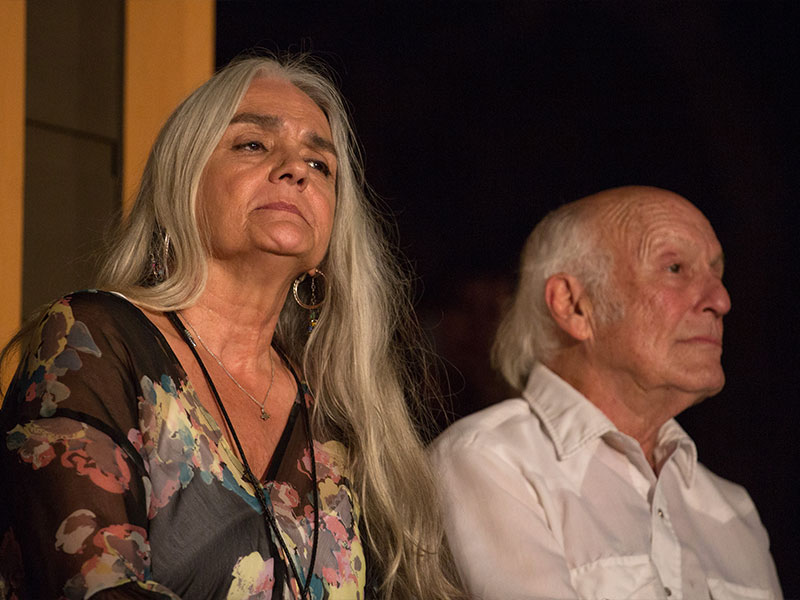 Lana Nelson (L) and Sonny Carl Davis attend a Q&A following the Luck Cinema screening of 'Red Headed Stranger' at Luck Ranch on July 06, 2019 in Spicewood, Texas. (Rick Kern/Getty Images for Shock Ink)
Lana Nelson (L) and Sonny Carl Davis attend a Q&A following the Luck Cinema screening of 'Red Headed Stranger' at Luck Ranch on July 06, 2019 in Spicewood, Texas. (Rick Kern/Getty Images for Shock Ink)Willie Nelson’s famed nickname “Shotgun Willie” stems from an infamous incident involving his daughter Lana’s ex-husband. While living in Ridgetop, Lana said she “was married to a guy who had some anger management issues, and he took it out on me.”
“It really pissed me off when he beat her up, so I went over there and slapped him around a little bit,” Willie Nelson said. “I told him not to ever do that again. Then he came back, taking shots at the house.”
“We had the whole family there,” Lana recalled. “My mother, who is freaking out, is screaming, 'Oh my God, oh my God, we're going to get killed!’”
It was at this moment when Willie Nelson’s first wife and his third wife met for the very first time. Connie said she came across Martha in the midst of the shootout: “I just grabbed her by the skirt and dragged her down and said, ‘Get down, you’re gonna get killed!’ That’s how I met Martha.”
Nelson, along with his late bandmate Paul English, managed to put a bullet into one of the ex-husband’s tires. The incident inspired the song “Shotgun Willie,” which is the title track of Nelson's 1973 album.
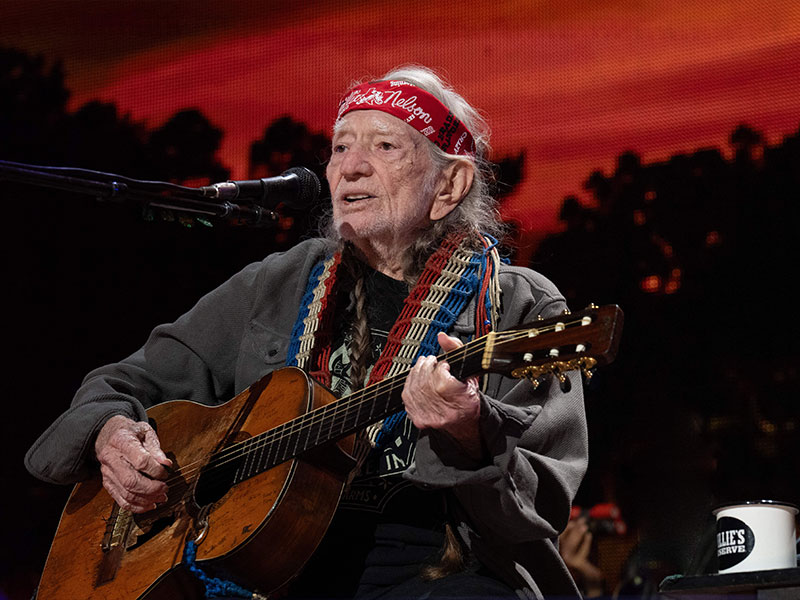 US musician Willie Nelson performs onstage during the Farm Aid Music Festival at the Ruoff Music Center in Noblesville, Indiana on September 24, 2023. (SUZANNE CORDEIRO/AFP via Getty Images)
US musician Willie Nelson performs onstage during the Farm Aid Music Festival at the Ruoff Music Center in Noblesville, Indiana on September 24, 2023. (SUZANNE CORDEIRO/AFP via Getty Images)In 1990, the IRS seized most of Willie Nelson’s assets (his gold records, a piano and his Texas ranch, just to name a few), claiming that he owed $32 million in income taxes. Nelson’s financial struggles began more than 10 years prior, when Reshen, his business manager at the time, failed to pay any taxes for years. Reshen was fired in 1978. That same year, Nelson released his hit album “Stardust,” which Rothbaum said earned him “serious money.”
Unfortunately, Nelson's financial situation grew worse during the 1980s, when he owed several million dollars worth of taxes. He sought advice from an accountant, who claimed that writing a check for $200,000 would eliminate his debt (spoiler alert: it didn’t). When he was advised to file for bankruptcy, Nelson refused, saying “that wasn’t my plan at all.”
"I never intended and never will do a bankruptcy where the people I owe get screwed out of their money,” Nelson said. “It’s very important to think positive. More important probably is knowing that a negative thought will release poison into your system and will eventually kill you if you keep doing it.”
Nelson eventually paid off his debt thanks to friends and one fan, who bought back his Texas ranch as a way of thanking him for Farm Aid. Sales made from Nelson’s 1991 album “The IRS Tapes: Who'll Buy My Memories” also helped solve his financial problems.
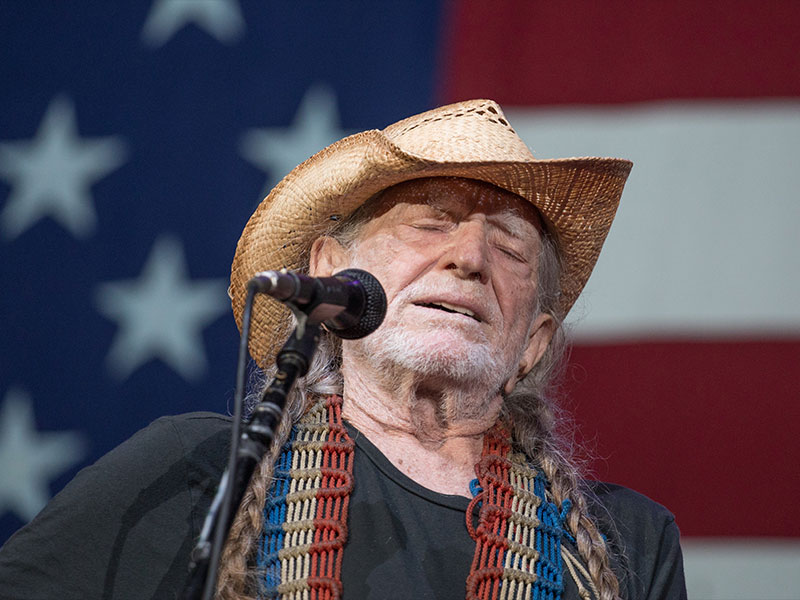 Singer-songwriter Willie Nelson performs onstage with Willie Nelson and Family during the 46th Annual Willie Nelson 4th of July Picnic at Austin360 Amphitheater on July 04, 2019 in Austin, Texas. (Rick Kern/WireImage for Shock Ink/Getty Images)
Singer-songwriter Willie Nelson performs onstage with Willie Nelson and Family during the 46th Annual Willie Nelson 4th of July Picnic at Austin360 Amphitheater on July 04, 2019 in Austin, Texas. (Rick Kern/WireImage for Shock Ink/Getty Images)In the series’ fourth and final episode, Willie’s son Lukas Nelson said his father’s determination and perseverance amid the lowest of his lows is what makes him so inspiring:
“Dad has been homeless, he’s had his house burnt down, he’s been through four marriages, he’s been up and down, he’s been broke, he’s [fought] the IRS, he’s lost a child . . . that’s what makes him inspiring to me: His resilience in the face of adversity.”
“Willie Nelson & Family” is currently available for streaming on Paramount+. Watch a trailer for it below, via YouTube:
Read more
about Willie Nelson:
